BOTSWANA
 Gaerolwe Masheto, MD
Gaerolwe Masheto, MD
LMIC Fellow
Dr. Masheto will spend his fellowship year in Botswana at the Botswana Harvard AIDS Institute under the mentorship of Shahin Lockman, MD & Sikhulile Moyo, PhD. His research will focus on Post-Acute Sequelae of COVID-19 (PASC) in children with and without HIV.
Dr. Masheto started working at the Botswana Harvard AIDS Institute Clinical Trial Unit (CTU) in 2011 as a Study Physician and has worked with a team which has successfully conducted International Maternal, Paediatric, Adolescents AIDS Clinical Trials (IMPAACT), AIDS Clinical Trials (ACTG) and HIV Prevention Trials Network (HPTN) clinical trials. Currently he is the CTU Coordinator, IMPAACT Network Site Project Leader/ Principal Investigator (PI) and Molepolole Clinical Research Site Leader. Dr Masheto graduated from Ross University School of Medicine in 2007 and from Stellenbosch University in 2012 with Post Graduate Diploma in Family Medicine. He is enrolled to Masters (MSc) in Clinical Epidemiology at the London University’s London School of Hygiene and Tropical Medicine. Dr. Masheto is a fellow for International AIDS Society (IAS) 2018.
GHANA
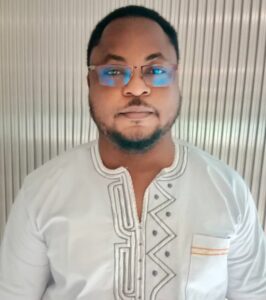 Chris Guure, PhD
Chris Guure, PhD
LMIC Fellow
Dr. Guure will spend his fellowship year at the University of Ghana School of Public Health in Accra under the mentorship of Christy Denckla, PhD and Ernest Maya, MBChB, MPH, FWAS. His research will focus on the topic: Nurses’ attitudes towards bereavement support and its effect on families with perinatal loss in Ghana.
Dr. Guure is a trained Epidemiological analyst, Bayesian and frequentist Biostatistician, a researcher and consultant with over eight years of experience. He holds a PhD in Epidemiology and Biostatistics. He is currently a Senior Lecturer with the Department of Biostatistics, School of Public Health, University of Ghana. He will be mentored by senior scientist who focus on understanding both the risk and resilience mechanisms associated with posttraumatic psychopathology, as well as factors associated with well-being and adaptation and also bereavement support.
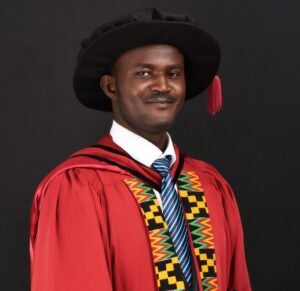 Daniel Oduro-Mensah, PhD
Daniel Oduro-Mensah, PhD
LMIC Fellow
Dr. Oduro-Mensah will spend his fellowship year at the University of Ghana in Accra under the mentorship of Douglas J. Perkins, PhD and Laud K. Okine, PhD. His research will focus on HIV/AIDS and HIV-associated cancers: Herb-drug interactions and potential CXCR4 antagonists of herbal origin.
Dr. Oduro-Mensah teaches Biochemistry at the University of Ghana, he is a PI at the West African Centre for Cell Biology of Infectious Pathogens, Ghana and is an Academic Partner of the African Centre of Excellence for Mycotoxin and Food Safety, FUT-Minna, Nigeria. His research interests are mainly in the areas of natural products biochemistry, microbial biotechnology and antimicrobial resistance. Some of his on-going research efforts in natural products biochemistry are designed to contribute to the understanding and management of inflammation-related chronic health conditions, with current focus on RNA virus diseases and pathogen-associated inflammatory sequelae. Dr. Oduro-Mensah is excited about his Fogarty Fellowship and looks forward to the new opportunities this period in his career will bring.
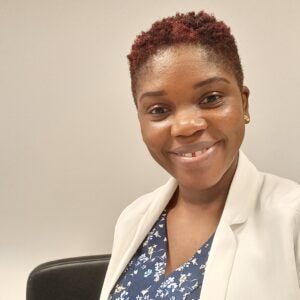 Frederica Partey, PhD
Frederica Partey, PhD
LMIC Fellow
Dr. Partey will spend her fellowship year at the West African Centre for Cell Biology of Infectious Pathogens (WACCBIP), University of Ghana in Accra under the mentorship of Gordon Awandare and Douglas Perkins, PhD. Her research will focus on characterizing the kinetics and longevity of SARS-CoV-2-specific humoral and cellular responses at baseline and after each dose of the ChAdOx1 nCoV-19(AZD1222) vaccine among Ghanaians.
Dr. Partey holds a master’s degree in stem cell and regenerative medicine from University of Sheffield and a PhD in biochemistry with applications in immunology of infectious diseases from the University of Ghana. Currently, Dr. Partey is a research fellow affiliated with the Noguchi memorial institute for medical research, UG and a part-time lecturer at WACCBIP. Her broad research interest involves understanding humoral and cellular responses against viral and parasitic infections in individuals naturally exposed to guide the design of next generation vaccines.
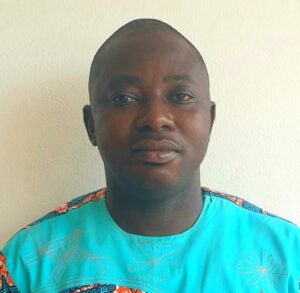 Jerry Joe Harrison, BSc, MPhil, PhD
Jerry Joe Harrison, BSc, MPhil, PhD
LMIC Fellow
Dr. Harrison will spend his fellowship year at the West African Centre for Cell Biology of Infectious Pathogens (WACCBIP) in Accra under the mentorship of Gordon Awandare, PhD and Douglas J. Perkins, PhD. His research will focus on characterizing HIV-2 reverse transcriptase (RT)-nucleic acid and RT-nucleic acid-drug complexes that offer insights into the mechanism of catalysis, inhibition and resistance.
During his MPhil research, Dr. Harrison developed protocols and analyzed antimalarial drugs sold in Ghanaian pharmaceutical and chemical shops. Dr. Harrison entered the laboratory of Prof. Eddy Arnold at Rutgers University as a Fulbright Scholar where he was trained in structural biology and biophysical chemistry. During his Ph.D. work, he designed protein constructs that enabled the expression, crystallization and the structure of the first retroviral Pol polyprotein, the protease-reverse transcriptase (PR-RT) fusion, of the prototype foamy virus. Dr. Harrison desires to establish his own research group at the University of Ghana that will continue to contribute to the structural biology of HIV as well as drug discovery by providing insights into key issues which remain unresolved. Structures of HIV Gag-Pol and Pol that offer insights into maturation of HIV and retroviral polyprotein processing remain a top priority and a long-term goal. Dr. Harrison is a recipient of two Government of Ghana awards for his scientific achievements.
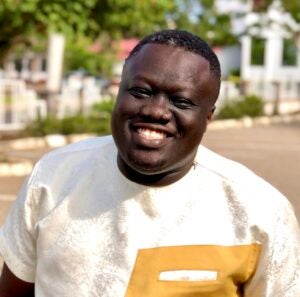 Kwabena Sarpong, PhD
Kwabena Sarpong, PhD
LMIC Fellow
Dr. Sarpong will spend his fellowship year at the University of Ghana in Accra under the mentorship of Douglas J. Perkins, PhD and Lydia Mosi, PhD. His research will focus on the development of a laboratory-based reflexive algorithm for the identification of falciparum and non-falciparum species and its clinical utility in the diagnosis of malaria in Southern Ghana. The project will create a novel working algorithm for clinical practice by utilizing data from the performance characteristics of various malaria Rapid Diagnostic Tests on the Ghanaian market and comparing that to microscopy and Nucleic Acid Amplification Tests.
Dr. Sarpong received his PhD in Biochemistry from Washington University in St. Louis and completed a clinical chemistry fellowship at the University of Virginia. His research program is dedicated to the strengthening of laboratory systems in Africa through basic science and clinical research. Dr. Sarpong has experience in the harmonization of reference intervals for pediatric and adult black populations, proficiency testing/external quality assurance for laboratories in LMICs and performance characteristics of RDTs utilized in resource-limited settings.
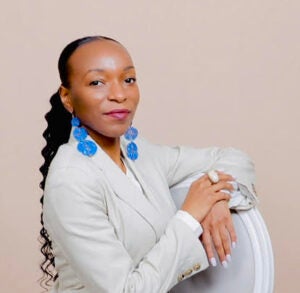 Shameka Thomas, MA, PhD
Shameka Thomas, MA, PhD
US Fellow
Dr. Thomas will spend her fellowship year at the West African Centre of Cell Biology and Pathogens (WACCIP) in Accra under the mentorship of Chris Sudfeld, ScD, ScM and Gordon Awandare, BSc, MPhil, PhD. Her research will focus on reproductive health equity, narrative medicine, mixed methods, translational research, and sickle cell disease among Black women and teenage girls with rare blood disorders.
Dr. Thomas is an early-career medical sociologist and reproductive health equity scientist. Dr. Thomas recently completed her postdoctoral fellowship at the National Institutes of Health, spending two-years as an intramural postdoctoral fellow / scientific investigator in the Health’s Health Disparities Unit of the Social Behavioral Research Branch in the National Human Genomics Research Institute (NHGRI). At NIH, her research focused on Black women’s health and patient perceptions of non-invasive prenatal testing as well as integrating social and clinical models into reproductive medicine among Black women with genetic conditions. Dr. Thomas received her PhD in medical sociology from the University of Miami. She also earned her bachelor’s degree from Spelman College, where she earned the distinguished scholar-activism award for global health research on Black women’s health.
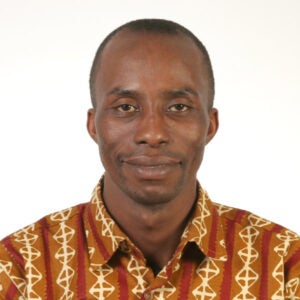 Stephen Amoah, PhD, MPhil
Stephen Amoah, PhD, MPhil
LMIC Fellow
Dr. Amoah will spend his fellowship year at the University of Ghana in Accra under the mentorship of Gordon A. Awandare, PhD and Douglas J. Perkins, PhD. His research will focus on determining the effect of cocoa on neural noncoding genes during inflammation in rodent models of diabetes mellitus.
Dr. Amoah is a lecturer in the Department of Anatomy and Cell Biology, University of Cape Coast, Ghana. His research goal is to investigate contributions of non-coding genes in the pathophysiology and management of neuropsychiatric and cardiometabolic disorders.
KENYA
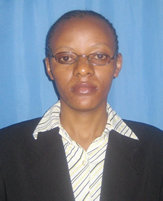 Sarah Kituyi, PhD
Sarah Kituyi, PhD
LMIC Fellow
Dr. Kituyi will spend her fellowship year at the Center for Global Health Research (CGHR) in Kisumu under the mentorship of Douglas J. Perkins, PhD and Collins Ouma, MSc, PhD. Her research will focus on the role of P. falciparum co-chaperone isoforms as potential anti-malarial drug targets.
Dr. Kituyi received her doctorate degree in Biochemistry from Rhodes University, Grahamstown, South Africa in 2017 and a post-doctoral training in cancer biology from the same University. She is currently a Biochemistry lecturer at the University of Embu- Kenya where she teaches clinical biochemistry and doubles as the coordinator of the Biochemistry field and industrial attachment. In 2018, Dr. Kituyi was awarded a visiting researcher award by the National research foundation of South Africa to undertake molecular chaperone research in South Africa. She was later awarded a TWAS-DFG cooperation visit award in 2021-2022 to continue this research at the Technical university of Munich in Germany. The HBNU Fogarty Global Health Training Program offers an excellent opportunity for Dr. Kituyi to join a mentored training paradigm that will transition her career as an independent scientist in disease biochemistry.
MALI
 Antieme Combo Georges Togo, PhD
Antieme Combo Georges Togo, PhD
LMIC Fellow
Dr. Togo will spend his fellowship year at the University of Sciences, Techniques and Technologies of Bamako (USTTB) in Bamako under the mentorship of Bassirou Diarra, MD, MSc, PhD and Mamoudou Maïga, MD, PhD. His research will focus on Immune Interaction between CMV and HIV/TB co-infection in Bamako, Mali.
In 2017, he completed a master’s degree of sciences. He is currently completing his PhD and is centering his research projects on the development of new tools for the diagnosis and management of infectious diseases, specifically drug resistance in TB, the early detection of resistance and mutation gene strategies. Dr. Togo is a building researcher whose career goal is to continue in-depth the Immune Interaction between CMV and HIV/TB co-infection and contribute to improving data availability for making policy decisions for adult and young persons in Mali, Africa and globally.
NIGERIA
 Deborah Dauda, MA, MPH
Deborah Dauda, MA, MPH
US Scholar
Ms. Dauda will spend her fellowship year at the University of Jos in Jos under the mentorship of Christy Denckla, PhD and Haruna Karick, PhD. Her research will focus on the self-care practices and healing strategies of Bajju women with experiences of domestic violence in Southern Kaduna, Nigeria.
Ms. Dauda is a mother/dancer/educator/activist and a PhD candidate in the School for Glob-al Inclusion and Social Development (SGISD) at the University of Massachusetts, Boston. She holds Master’s degrees in Public Health (MPH) and African Studies (MA) from the University of California, Los Angeles (UCLA). Her research agenda as a Black Feminist researcher, scholar-activist, and practitioner is dedicated to the flourishing of Black women and girls. She is a recipient of a Fulbright research award to Nigeria, a University of North Carolina (UNC) Foreign Language and Area Studies (FLAS) Summer Fellow, and a recipient of the American Philosophical Society’s Lewis and Clark fieldwork grant. Ms. Dauda is a member of the Community Advisory Council (CAC) at the Community Engagement Re-search Incubator and Strategy Hub (CERISH). She is also a member of the Community Healing Network (CHN), an organization dedicated to the emotional emancipation and healing of Black communities worldwide. In her spare time, she enjoys spending time with family, reading, cooking, street-dancing, and playing soccer.
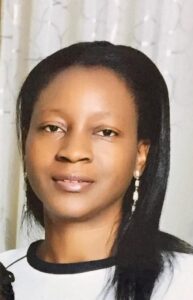 Olukemi Ige, MBBS, FWACP, MEd
Olukemi Ige, MBBS, FWACP, MEd
LMIC Fellow
Dr. Ige will spend her fellowship year at the University of Jos in Jos under the mentorship of Phyllis Kanki, DSM, DSc and Antiene Sagay, BSC, MBChB, FWACS, FICS, FRCOG. Her research will focus on studying structural and functional cardiac anomalies in HIV exposed neonates in Nigeria.
Dr. Ige is a lecturer/ Consultant Paediatrician in the Department of Paediatrics at the University of Jos, Nigeria. She is currently a long distance PhD student at the Ludwig- Maximillian University in Munich, Germany. Her primary research interest presently focuses on the epidemiology of congenital cardiac anomalies.
 Yewande Adeyemo, BDS
Yewande Adeyemo, BDS
LMIC Fellow
Dr. Adeyemo will spend her fellowship year at Aminu Kano Teaching Hospital in Kano under the mentorship of Morenike O. Ukpong, BChD, MBA, FWACS, MEd, Muktar H. Aliyu, MBBS, MPH, DrPH and Modupe O. Coker, BDS, MPH, PhD.
Her research will focus on assessing the impact of an educational intervention program to improve the oral health of children living with HIV in Kano, Nigeria.
Dr. Adeyemo is an attending pediatric dentist with Aminu Kano Teaching Hospital, and a senior lecturer at Bayero University, both in Nigeria. She is currently completing her Master of Science in Global Health and Policy at Bayero University. Her career goal is to become a research leader in the field of oral health and oral health-related quality of life of children.
RWANDA
 Alex Zhuang, MS
Alex Zhuang, MS
US Scholar
Mr. Zhuang will spend his fellowship year at the University of Global Health Equity (UGHE) in Kigali under the mentorship of Thomas Weiser, MD, MPH, Abebe Bekele, MD, FCS, FACS and David Hamer, MD. His research will focus on conducting a needs assessment of the barriers, facilitators, and receptiveness to implementing Lifebox’s Clean Cut multimodal adaptive surgical site infection prevention program at several different hospitals throughout Rwanda. He will also work closely with Lifebox staff and fellows in Rwanda with both implementation of Clean Cut and other surgical safety quality improvement programs.
Mr. Zhuang recently finished his third year of medical school at Boston University School of Medicine and is an aspiring surgical oncologist who is eager to collaborate with partners in Rwanda. His career goals include learning how to best provide compassionate and humanistic care to his patients, conducting robust research in surgical quality improvement and clinical trials, and finally giving back to the next generation of future physicians.
 Barnabas Alayande, MBBS, MBA, FMCS
Barnabas Alayande, MBBS, MBA, FMCS
LMIC Fellow
Dr. Alayande will spend his fellowship year at the University of Global Health Equity (UGHE) in Kigali under the mentorship of Abebe Bekele, MD, FCS, FACS, Robert R. Riviello, MD, MPH and Thomas G Weiser, MD, MPH. His research will focus on defining gaps in Bellwether procedural skills (cesarean-section, laparotomy, management of open fracture) of recent medical graduates at Rwandan district hospitals, and determining Entrustable Professional Activities for the transition from medical school to district hospital surgical practice in the Rwandan context through the EnTRUST project (Entrustable Professional Activities for The Rwanda Undergraduate in Surgery Today).
Dr. Barnabas is a Global Surgery Fellow and General Surgeon with the Center for Equity in Global Surgery at UGHE and a Paul Farmer Global Surgery Fellow with the Harvard Program in Global Surgery and Social Change. He is currently a Fellow of the National Postgraduate Medical College of Nigeria and a Senior Registrar with the West African College of Surgeons. He seeks to craft a platform from which to pioneer local advances in equity driven surgical education, global surgery research, trauma care, contextualized minimal access surgery, and health management.
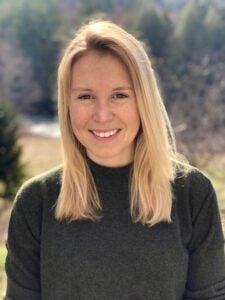 Sarah Nuss
Sarah Nuss
US Scholar
Ms. Nuss will spend her fellowship year at the University of Global Health Equity in Kigali under the mentorship of Bethany Hedt-Gauthier, PhD and Frederick Kateera, MD. Her research will focus on increasing access to pediatric surgical care: assessing district hospital readiness in rural Rwanda.
Ms. Nuss is from Boston, Massachusetts and is an MD candidate at the Warren Alpert Medical School at Brown University in Providence, RI. She developed an interest in health equity through public health research in Peru and Costa Rica. Ms. Nuss went on to work for Partners in Health in Chiapas, Mexico, where she became interested in global surgery systems strengthening. She serves as the Northeast Regional lead for the Global Surgery Student Alliance and is an active member of the Global Otolaryngology Head and Neck Surgery Initiative. Her interests include gender disparities, surgical system capacity building, and research equity globally.
SOUTH AFRICA
 Ian Mbano, PhD
Ian Mbano, PhD
LMIC Fellow
Dr. Mbano will spend his fellowship year at the Africa Health Research Institute (AHRI) in Durban under the mentorship of Thumbi Ndung’u, BVM, PhD and Douglas Kwon, MD, PhD. His research will focus on implementing a live biotherapeutic to promote the colonization of the female genital tract with Lactobacillus crispatus (which is associated with favorable clinical outcomes) in young South African women at risk of HIV infection.
Dr. Mbano is a Post Doctoral Fellow at AHRI, based at the University of KwaZulu Natal (UKZN). He is a early career scientist whose goal is to perform science that can be translated into useful clinical interventions, particularly in underprivileged communities in South Africa, Sub-Saharan African and the world at large.
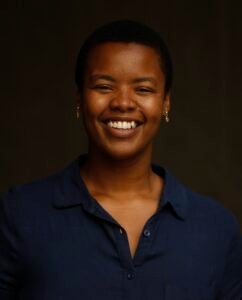 Zolelwa Sifumba, MBChB
Zolelwa Sifumba, MBChB
LMIC Fellow
Dr. Sifumba will spend her fellowship year at the Africa Health Research Institute (AHRI) in Durban under the mentorship of Emily B. Wong, MD and Ingrid Basset, MD, MPH. Her research will focus on understanding the experience and care-seeking journey of patients diagnosed with TB, while asymptomatic, during community-based screening in an area with high prevalence of HIV and TB (rural KwaZulu-Natal, South Africa).
Dr. Sifumba is currently a Clinical Research Fellow at the Africa Health Research Institute. She obtained her MBChB (Bachelor of Medicine, Bachelor of Surgery) at The University of Cape Town and completed her medical internship and community service in rural KwaZulu-Natal, South Africa, providing her with 3 years of clinical experience managing numerous people diagnosed with Tuberculosis, HIV and other conditions. As a medical student she contracted Multi Drug Resistant Tuberculosis due to her occupational exposure to the condition and went on to share her story on national and international platforms, becoming a global activist and advocate in the field of TB. She hopes to use this experience as well as the training and mentorship provided by this program to continue to contribute to the field meaningfully as a researcher, advocating for the inclusion within scientific dialogue the voices of those who have experienced Tuberculosis first-hand to assist in improving TB care globally.
TANZANIA
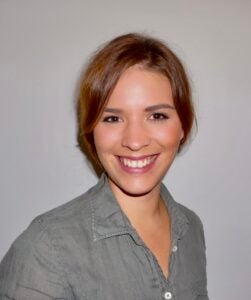 Anna Tupetz, MSc, DPT
Anna Tupetz, MSc, DPT
US Fellow
Dr. Tupetz will spend her fellowship year at the Kilimanjaro Christian Medical Center (KCMC) in Moshi under the Mentorship of Catherine Staton, MD, MSc and Blandina Mmbaga, MD, MMed, PhD. Her research will focus on analyzing the burden of unscheduled re-hospitalizations to KCMC of patients previously hospitalized due to secondary complications, and identify potential intervention strategies to prevent re-hospitalizations.
Dr. Tupetz is a Postdoctoral Associate with the Department of Surgery, Division of Emergency Medicine, and the Global Emergency Medicine Innovation and Implementation Research Center (GEMINI) at Duke University School of Medicine. She also practices clinically as a Physical Therapist within the Duke University Health System. She focuses her research on the challenges and factors impacting access to quality care from the patient and the provider side, with particular attention to implementation research and intervention development designs.
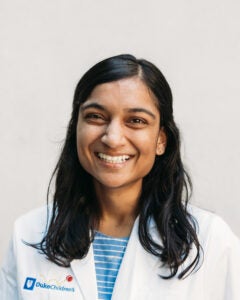 Ganga Moorthy, MD
Ganga Moorthy, MD
US Fellow
Dr. Moorthy will spend her fellowship year at Kilimanjaro Christian Medical Centre in Moshi under the mentorship of Matthew Rubach, MD and Blandina Mmbaga, MD, PhD. Her re-search will focus on describing the epidemiology and antibiotic resistance patterns of neonatal bloodstream infections. Additionally, see seeks to identify biomarkers that can aid in the diagnosis of neonatal sepsis.
Dr. Moorthy is a post-doctoral pediatric infectious diseases and global health fellow in the Duke Division of Pediatric Infectious Diseases and the Duke Hubert-Yeargan Center for Glob-al Health. She is currently completing her Master’s of Science in Global Health at Duke University. Her career goals are to improve antimicrobial use, diagnostic testing, and outcomes in children with febrile illness and develop, assess, and expand antimicrobial stewardship programs domestically and globally.
 Khanh Pham, MD, MS
Khanh Pham, MD, MS
US Fellow
Dr. Pham will spend his fellowship year at the Weill Bugando Medical Centre and National Institute for Medical Research in Mwanza under the mentorship of Jennifer A. Downs, MD, PhD and Dr. Hyasinta Jaka, PhD. His research will focus on characterizing the interplay between Schistosoma mansoni and other infectious and noncommunicable diseases. In particular, his fellowship project will examine the effects of S. mansoni infection and praziquantel treatment on the immunogenicity of an interferon-gamma release assay in a cohort of Tanzanian adults.
Dr. Pham is currently completing his infectious diseases training at Weill Cornell Medicine in New York City and will remain at Weill Cornell as an Instructor of Medicine in the Division of Infectious Diseases starting in July 2022. He recently completed his Master’s Degree in Clinical Epidemiology and Health Services Research in May 2022 at the Weill Cornell Graduate School of Medical Sciences. He is a budding junior researcher whose research efforts have been recognized several times during his infectious diseases training, which include receiving a Burroughs Wellcome Fund from the American Society of Tropical Medicine & Hygiene. Prior to his infectious diseases training, Dr. Pham completed his medical education at the University of Massachusetts Medical School in Worcester, Massachusetts. He later completed both his internal medicine residency and infectious diseases fellowship at New York-Presbyterian/Weill Cornell in New York, New York. He currently lives in New York City with his wife, Donnie, and dog, Ellie.
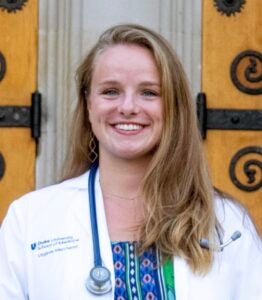 Virginie Marchand
Virginie Marchand
US Scholar
Ms. Marchand will be spend her fellowship year at the Kilimanjaro Clinical Research Institute (KCRI) in Moshi under the mentorship of Melissa Watt, PhD, Susanna Cohen, DNP, CNM, CHSE, FAAN, FACNM and Blandina Mmbaga, MD, MMed, PhD. Her research will focus on the implementation and evaluation of a training intervention for labor and delivery providers to address HIV stigma during childbirth.
Ms. Marchand is a rising third year medical student at Duke University School of Medicine. After medical school she plans to complete an Obstetrics & Gynecology residency and pursue a career promoting women’s health and access to care globally.
ZAMBIA
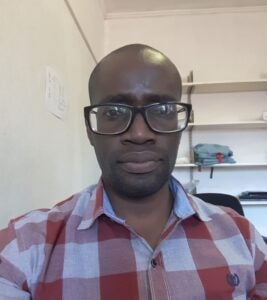 Stanley Zimba, MBChB, MMed, STP
Stanley Zimba, MBChB, MMed, STP
LMIC Fellow
Dr. Zimba will spend his fellowship year at the University of Zambia School of Medicine in Lusaka under the mentorship of Omar Siddiqi, MD and Lloyd Mulenga, MBChB, MMed, PhD. His research will focus on clinical characteristics, risk factors and endothelial dysfunction in people with HIV and stroke in Zambia.
Dr. Zimba is a consultant physician and neurologist at the University Teaching Hospital in Lusaka. He recently completed his neurology training and he is one of the first three Zambian adult neurologists. Dr. Zimba is a budding researcher whose career goal is to contribute to novel interventions for the prevention and treatment of stroke in people with HIV in Zambia, Sub-Saharan Africa and globally.
